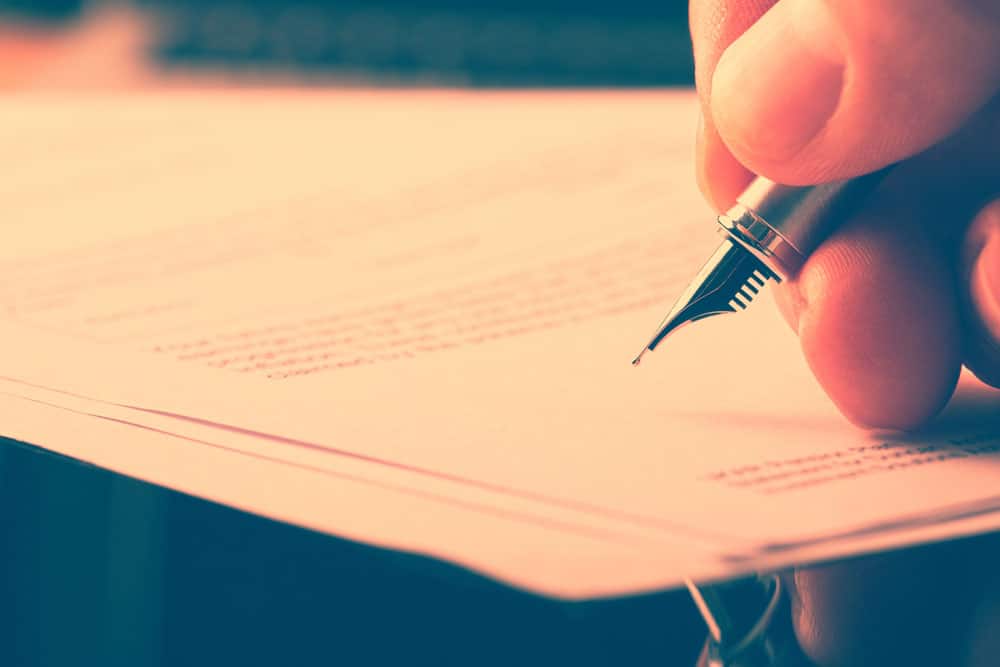[COVID-19] Holograph Wills: Creating a Valid Will During Uncertain Times
With the rapid global spread of the novel coronavirus known as COVID-19, people from all walks of life are becoming increasingly concerned about having a valid Will in place, and rightfully so.
Estate Planning and Social Media
Social media is an ever-increasing, and important, part of most people’s daily lives, especially during times of crisis, when it allows us to connect with loved ones and apprise ourselves of recent happenings. While social media no doubt has its benefits, Facebook groups, Reddit comment threads, and other social media are rife with misinformation about estate planning.
While much of the misinformation circulated on social media about Wills is well-intentioned, an invalid Will or inadequate estate plan has the potential to create hardship for loved ones should you pass away or lose capacity. In that light, it’s worthwhile to discuss what you can do to ensure that you have a valid Will in place, even if you’re unable to visit a lawyer’s office or afford the cost of a lawyer-drafted Will package.

I Don’t Have a Valid Will in Place. What Now?
If you find yourself in an emergency situation without a Will, here are some steps you can take:
1. Don’t Panic
It’s a natural human response to become anxious, stressed, or even downright panicked during times of emergency, illness, or tragedy. While it may be trite advice, it’s important not to panic, even if you don’t have a valid will in place. Contrary to popular belief, your assets won’t go to the government if you pass away without a Will, except in extraordinary circumstances.
2. Contact an Estate Planning Lawyer if You’re Able
If you’re able to afford a lawyer-drafted Will package and are not under quarantine or self-isolation, it is best that you find a lawyer who is able to assist you in drafting and executing your Will. When choosing a law firm to assist you, consider asking what practices they’ve implemented and what precautions they’ve taken to maintain social distancing and reduce the spread of coronavirus. Many law firms, including West Legal, offer telephone consultations to reduce face-to-face contact.
3. Avoid Using a Will Kit
It’s best to avoid the various one-size-fits-all Will kits that can be found online, at bookstores, or in registry offices. Will kits frequently are outdated, intended for a jurisdiction other than Alberta, or are missing critical elements that are necessary to a valid Will.
4. Draft your Own Will
If financial circumstances, illness, law firm closures, or government mobility restrictions leave you unable able to consult with an estate planning lawyer for any reason, you can draft your own Will.
While it is undoubtedly less comprehensive than a lawyer drafted Will, a self-drafted Will is preferable to a Will drafted by a friend, relative, or a non-lawyer, even if said person claims to have the ability or knowledge to draft your Will. Regardless of whether the person offering to draft your Will is a well-meaning ‘good Samaritan’ or hopes to capitalize on people’s fear, it’s illegal for non-lawyers to provide legal services in exchange for money in Alberta.
While it may seem counterintuitive, we recommend that you draft your own Will, or what is in Alberta called a “holograph Will”, during times when it’s not feasible to have a lawyer prepare a Will on your behalf.
What is a Holograph Will?
Section 16 of the Wills and Succession Act, contemplates the validity of so-called holograph Wills. The legislation is clear that “a Will may be made by a writing that is wholly in the testator’s own handwriting and signed by the testator without the presence or signature of a witness or any other formality.”
In other words, you, the Testator, or the person giving the Will, can create your own, fully valid Will, provided that it is in your own handwriting and is signed by you only, with no other persons present, and no other formalities are attached to the Will.
While estate laws differ between provinces, courts in Alberta have acknowledged the validity of holograph Wills on multiple occasions. An interesting and unique case involving a holograph Will was recently handed down by the Court of Queen’s Bench in Saskatchewan. In that case, a McDonald’s napkin with a man’s last wishes written on it was deemed a valid holograph Will!
How do I Draft my Holograph Will?
While we certainly don’t recommend using a fast-food napkin, if you find yourself in a situation where you’re unable to obtain a lawyer-drafted Will for any reason, you should draft your own holograph Will in your own handwriting on a piece of paper, and sign it. No one else should witness the Will or be present when you sign it.
What Should my Holograph Will Include?
- At a minimum, your Will should include the following:
- A statement confirming that the document is indeed your Last Will and Testament;
- A statement revoking all prior Wills;
- The appointment of a Personal Representative (commonly known as an Executor)—it’s helpful to appoint an alternate choice as well in the event that your first option is unable or unwilling to act;
- The appointment of a Guardian for your children, or any other dependents, and an alternate guardian in the event that your first choice is unable to act;
- The gifts or bequests you intend to make. While you can bequest specific items, it’s important to ensure that there are one or more residuary beneficiaries to receive the bulk of your estate, or whatever isn’t given as a specific bequest.

As a simple example, your bequests could look something like this:
- I DIRECT my Personal Representative to transfer my NHL hockey jersey collection to my brother, Bob; and
- I DIRECT my Personal Representative to pay or transfer the residue of my estate to my wife, Jane.
- If Jane has predeceased me, I DIRECT my Personal Representative to pay or transfer the residue of my Estate, in equal shares, to my children at such time as they each individually attain the age of 18 years.
Your holograph Will should not include any of the following:
- It should not be witnessed by anyone;
- No one else should be present when you write and sign the Will;
- It should not be typed;
- It should not be in anyone else’s handwriting but your own; and
- It should not have any formalities, such as an Affidavit of Execution.
If you wish to obtain legal advice regarding your Will or Estate Plan, the experienced Wills and Estates lawyers at West Legal are currently booking telephone consultations and are happy to guide you through the estate planning process.

